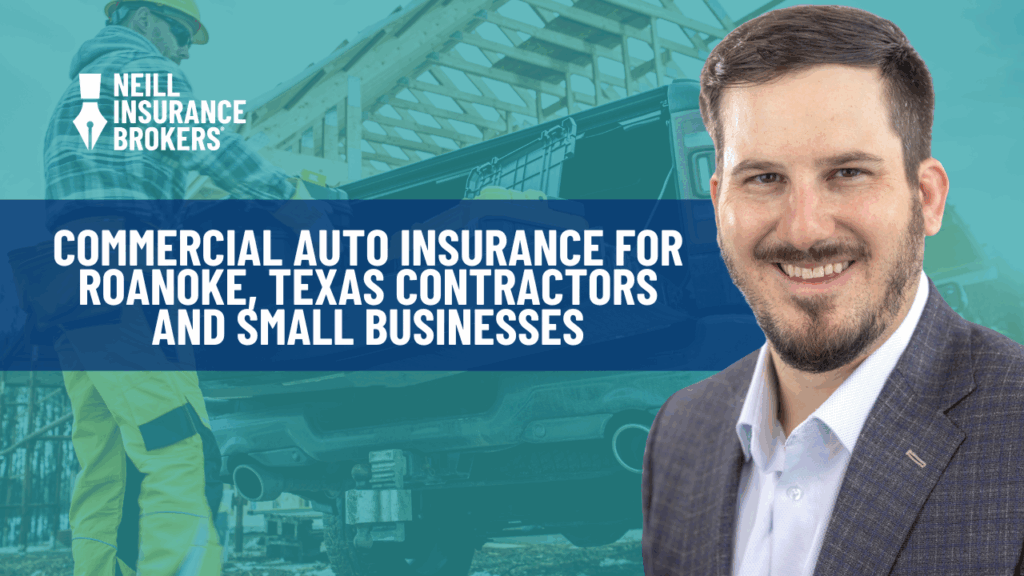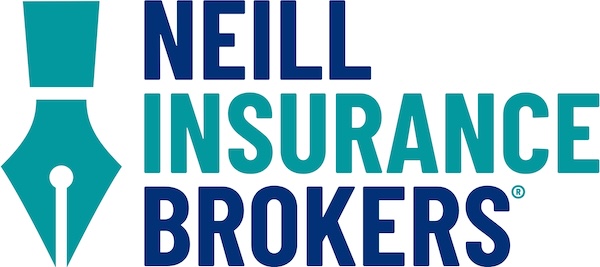
Do you rely on company vehicles to keep your business moving in Roanoke, Texas?
What would happen if an accident—or a lawsuit—sidelined your operations tomorrow?
Whether you’re hauling tools to a job site or sending employees out on deliveries, your business vehicles are essential to your daily operations. But without proper insurance coverage, one accident could derail everything you’ve built.
In this article, you’ll learn how commercial auto insurance works in Texas, why it’s crucial for contractors and small business owners, what coverage options exist, and how to manage your premiums without cutting corners on protection.
Here’s what we’ll cover:
- Texas commercial auto insurance laws and vehicle qualifications
- Key coverages, including specialized options for contractors
- How rates are calculated and ways to save
- Claims process and compliance requirements
- Local insurance agents who understand contractor needs
Why Commercial Auto Insurance Is Non-Negotiable in Texas
If you operate a small business or work as a contractor in Texas, commercial auto insurance isn’t optional—it’s the law. State regulations require a minimum level of liability coverage for any vehicle used for business purposes. But basic coverage often falls short for the high-risk work contractors do every day.
Required Minimums in Texas
Texas law mandates that all commercial vehicles carry liability coverage with a 30/60/25 split:
- $30,000 for bodily injury per person
- $60,000 for bodily injury per accident
- $25,000 for property damage per accident
While these meet the legal minimums, they rarely meet real-world risk needs—especially for contractors operating in high-liability environments.
What Qualifies as a Commercial Vehicle?
Any vehicle used for work-related purposes—especially if it’s titled under your business—is likely considered commercial in Texas. Common examples include:
- Delivery trucks or cargo vans
- Construction vehicles and trailers
- Service trucks for HVAC, electrical, plumbing, or landscaping work
- Employee-driven company cars
- Vehicles rented or leased for business
What Your Policy Needs to Cover: Essential and Optional Protections
At the heart of every commercial auto policy are core coverages that protect your people, your vehicles, and your business.
Must-Have Coverage Types
- Liability Coverage: Pays for injuries or damage your vehicle causes to others—includes legal defense.
- Collision Coverage: Covers damage to your vehicle from an accident, regardless of fault.
- Comprehensive Coverage: Protects against theft, vandalism, hail, flooding, and other non-collision incidents.
- Medical Payments Coverage: Pays medical expenses for you and your passengers after an accident.
Specialized Coverages for Contractors
- Uninsured/Underinsured Motorist: Critical if the other driver can’t pay for your losses.
- Hired and Non-Owned Auto (HNOA): Protects when employees use personal vehicles or when renting for business use.
- Tools and Equipment Coverage: Covers valuable gear often stored or transported in work vehicles.
Why Contractors Face Higher Premiums (and How to Prepare)
Risk Classifications Matter
Some trades face greater exposure. For example:
- High-Risk: Roofing, demolition, heavy construction
- Moderate Risk: Electrical, HVAC, plumbing
- Lower Risk: Painting, flooring, cabinetry
Higher risk = higher premiums. But planning ahead helps you control costs.
Equipment and COI Needs
- Protect your onboard tools with specific endorsements.
- Ensure you have a Certificate of Insurance (COI) ready—many clients require it before awarding jobs.
What You’ll Pay and What Affects Your Rate
Average Costs in Texas
- $218/month or $2,610/year is typical for commercial auto in Texas.
- Contractors can expect closer to $272/month based on national averages.
Factors That Influence Premiums
- Vehicle Specs: Newer, safer, or more expensive vehicles cost more to insure.
- Location: High-crime or urban areas raise premiums.
- Type of Work: Your specific trade drives your risk classification.
- Driving Records: Clean records earn discounts; violations increase costs.
How to Reduce Costs Without Reducing Coverage
Common Discounts
- Multi-policy bundles
- Safety feature credits
- Professional association discounts
- Pay-in-full or autopay incentives
Smart Risk Management
- Install GPS and safety tracking in fleet vehicles.
- Implement employee driver training.
- Use maintenance logs and telematics to show proactive safety practices.
What to Do If You Need to File a Claim
In Texas, the claim process is structured and time-sensitive:
- Report Immediately: Notify your carrier or agent.
- Document Everything: Photos, statements, and receipts.
- Know the Timeline:
- 15 days to acknowledge your claim
- 15 days for approval or request for more time
- 5 days to pay once approved
Cooperate with your adjuster and keep records of every interaction.
Don’t Overlook DOT Compliance
If your work involves heavy vehicles or interstate travel, you may need:
- USDOT Numbers (for vehicles over 10,001 lbs)
- CDLs (for vehicles requiring special licenses)
- TxDMV Registration (for intrastate operations)
Regular inspections, driver files, and maintenance logs are part of staying compliant—and staying insured.
Trusted Local Insurance Experts in Roanoke
Who’s Got Your Back?
- Neill Insurance Brokers (101 N Oak St): Independent agency specializing in contractor insurance.
- State Farm Agents Amanda Varner & Garrett Spegar: Offer business packages with commercial auto options.
What to Look for in an Agent
- Deep knowledge of Texas commercial insurance laws
- Specialization in contractor and small business coverage
- Responsive claims support
- Access to multiple carriers for competitive quotes
Before You Hit the Road: What Every Contractor Should Do Next
Plan for Your Unique Risks
- Evaluate your service area, job type, and equipment needs.
- Consider limits beyond state minimums—$1M to $2M liability is common for serious protection.
Review and Revise Often
- Your policy should grow with your business.
- Add new vehicles? Expand to new cities? Your coverage should reflect that.
Train and Maintain
- Invest in driver training and vehicle maintenance to reduce accidents—and lower premiums.
Conclusion: Your Next Steps Toward Peace of Mind
You’ve worked too hard to let an accident—or a lawsuit—derail your business. Now that you understand what commercial auto insurance can (and should) cover for Roanoke contractors, it’s time to take action.
Whether you’re just getting started or overdue for a policy review, partnering with a local agent who understands your trade can make all the difference. The right coverage isn’t just a requirement—it’s an investment in your business’s future.
Your next step? Connect with a Roanoke-based insurance agent and ask them how they can tailor a policy that grows with your business and protects everything you’ve built.

